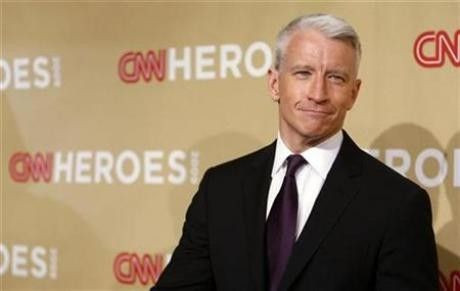We're Here, We're Queer -- We're Misrepresented
Opinion

The coming out process is an extremely peculiar experience. Though it is a process that is near-universal in the LGBT community, it is also hyper-individualistic. While most who identify as LBGT have gone through a sort of coming-out process -- which is not one step, by the way, but a complex evolution of self-acceptance over time -- we, more important, have each gone through a unique process. It's an insular process, the details of which no one else will ever be completely privy. There are as many ways to come out as there are ways to be queer, to put it simply.
In what will undoubtedly be referred to chronologically as the BC (Before Cooper) era, a quiet storm of media speculation gathered over the head of Anderson Cooper. The rolling thunder of prying eyes and pointed index fingers led to what may be one of the most significant coming-out stories of the year. However, we -- yes, we the people -- must recognize the role we subsumed in the story of one man's journey toward making his sexuality public knowledge. The journalists, the bloggers, the microbloggers have ushered in an era where bullying someone into sexual openness is not only widely accepted, but the new normal.
One of the most fundamental mantras of anyone involved in social justice work -- whether it be through activism, academia, etc. -- is that the personal is the political. Our identities have an immeasurable, immense, and unmistakable impact on the way we live our own lives, how we experience the phenomena of the world, and how others perceive us as beings in this world. Cooper's sexual identity is a facet of his identity that has tinctured the way he is spoken about as a public figure -- whether it is by Kathy Griffin, the LGBT media, or fellow co-anchors. Cooper's sexuality, an opaque specter that followed him about for years, was the subject of such intense media scrutiny -- especially the queer blogosphere -- that his announcement to the general public on July 2 was more of an Alright already! than a true revelation. While the personal is inherently political, the blogosphere was hell bent on making Cooper coming out publicly not for his own validation, but for our own political means.
But that's not how coming out works. What Cooper did in public should definitely not be called a coming out. It was a dragging out of a perfectly secure gay man -- a throwing of a Christian to the media lions. The coming-out process, a private process that involves loved ones, lovers, family, friends, should not be a matter of induced labor with the media holding both the labor-inducing drug and the epidural. Really, the coming out process should be a process of personal catharsis, and lead to a sense of personal fulfillment -- not a media-produced spectacle that leaves the reader with the sense of catharsis in the end. Our carnivorous need for new fodder would not let a man rest comfortably. Cooper never had a problem with his sexual identity -- it was the public that had a problem with our lack of knowledge regarding his sexual behavior.
We should not mistake openness to a person's sexual identity with a deep craving to know a person's bedroom politics. What we are experiencing in this, the year 1 AD (Anderson Demystified), is not a public that has moved closer to acceptance -- just further from the ability to mind our own business.
Mathew Rodriguez is a graduate of Fordham University, where he majored in English and Comparative Literature, and minored in Women's Studies and Creative Writing. Mathew is a published essayist, new media journalist, and academic. He plans to pursue a PhD in English with a concentration in gender studies. Mathew is also a social activist who embraces the tenets of feminism and works for LGBT rights. When not writing, he currently works for the LGBT health/ medical services nonprofit APICHA Community Health Center as their Program Assistant. Follow him on Twitter @mathewrodriguez
© Copyright IBTimes 2024. All rights reserved.





















